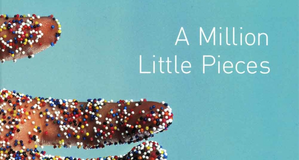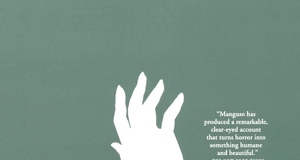Memoirs and Confessions: The Hybrid Form of Decadent Texts
By
2010, Vol. 2 No. 12 | pg. 2/2 | « Viewed in this way, the Memoirs become an endless progression of plot and penis, as Fanny works her way through encounter after encounter. The novel cannot simply rely on the developing of relationships and recounting of factual events, as in a ‘pure’ autobiography, but must continuously introduce more ludicrous pornographic scenarios in order to keep the reader entertained. Friedman’s argument views the novel simply as pornography, discounting the, albeit fictitious, autobiographical conventions, but Memoirs of a Woman of Pleasure is a novel the slave of two masters: it must fulfil the demands of two separate genres, both the autobio- and the pornographic. Logically, in this generic style, “every central character must be relatively innocent at the beginning of his book: must be more innocent earlier in the story than he is later in the story.” (Friedman 540) According to Frieman, it is therefore inevitable that a loss of innocence will occur. Here is presented a defence of Fanny that relies on the internal logic of the novel’s own plot. (Recalled by Frieman is the scene where Fanny is terrorised into paying rent with the threat of debtor’s prison: “Against such harsh and subtle assaults, what sort of change does innocence stand?” (Friedman 542) Graham writes “that Fanny Hill ends in marriage is another of its absurdities,” (582) but I would posit that this not quite the whole truth. Rather, the ‘happy ending’ of the novel represents that interfering (true) male author, John Cleland. This is the problematic tripartite authorship to which I referred to earlier, for as young Fanny Hill experiences these absurd sexual couplings, the older Fanny Hill remembers the experiences with a mixture of moral outrage and pleasure, but John Cleland must continue the novel, dictated by his choice of genre, yet simultaneously writing a text that will not be too transgressive. It could be argued that in this final objective, Cleland failed, as the text was immediately deemed unacceptable on publication.For Graham, the “male authorship” of Memoirs of a Woman of Pleasure is apparent in all the ways in which women relate and react to their male lovers. Indeed the multiple sapphic couplings in the novel seem to only be an extension of phallo-centric erotic imaginings. What results is a confused text, operating with several objectives but meeting none of them, save the publication of something that is transgressive, subversive and supposedly immoral. I say supposedly, because if the Memoirs are such am immoral and unacceptable text, how does one then explain the enduring popularity of the work? For Thornton, what marks out the Decadent text is a “retreat from reality,” which itself occurs in two different methods. First, there is a “languid withdrawal,” which is clearly evident in the drug-narrative of the Confessions. Second, and more subtle, is the transformation of reality, of “going beyond while keeping one foot anchored in the real world.” The distinguishing feature of the Decadent for Thornton is the "retreat from reality", which plays out in any of several ways: "lack on intensity...effete casualness, the languid withdrawal", which he calls "superficial retreat"; and the subtler retreat of escaping or transforming reality for the sake of art and the artificial, going beyond while keeping one foot anchored in the real world (Thornton, as cited in Fletcher 28). It is this latter transformation that is evident in the Memoirs. The novel does not present an accurate worldview, and unlike what Fanny would have her audience believe, truth is most definitely not the word; instead, it is a male-oriented sexual fantasy, where women are obliging and embrace their ‘conquerors’ with ‘eager suction’; phalli are engorged, majestic and distended, objects of ‘wonder and delight’ to their female (and occasionally male) observers; and, where no access to the male organ is available, promiscuous females will caress and make love to one another for want of anything better to do. What then to make of the confusing muddle of genres in which these two texts situate themselves? It is problematic to reach a final conclusion because these two texts represent works undertaken while a literary form was still very much in its infancy. That constant development is a trademark of the Decadent text, for no sooner has a Decadent text created something new, than the very nature of the movement, and the attention given to such works begins to degrade the accomplishments. Denisoff provides a final, bleak view of the end result of these Decadent works: By the fin of the fin de siècle, actual aestheticist and Decadent works had become so entangled with their critiques, parodies and self-analyses that it was no longer useful to accuse the art and literature of artifice or superficiality. The surface facade had become the main site of meaning, and this challenge to the depth model of identity threatened to leave critics with no ethical foundation on which to build their accusations. (Denisoff 48) In responding to the blatant criticism and outcry directed at them, transgressive texts like the Memoirs and the Confessions ultimately create the ‘Decadent’ genre, a genre which, it would seem, is doomed from the very outset to erode itself into nothing. ReferencesChamberlin, J. Edward. Ripe Was the Drowsy Hour: The Age of Oscar Wilde. London: Seabury Press, 1977. Cleland, John. Fanny Hill or Memoirs of a Woman of Pleasure. Penguin Popular Classics ed. Harmondsworth, UK: Penguin, 1749. De Quincey, Thomas. Confessions of an English Opium Eater. Wordsworth Classics ed. Hertfordshire, UK: Wordsworth Editions, 2009. Denisoff. "The Cambridge Companion to the Fin De Siècle." (2007). Fletcher, Ian. Decadence and the 1890's. New York: Holmes & Meier, 1980. Friedman, Alan. "The Stream of Consciousness as a Form in Fiction." The Hudson Review 17 4 (1964-5): 537-46. Gilman, Richard. Decadence. New York: Farrar, Straus and Girroux, 1979. Graham, Rosemary. "The Prostitute in the Garden: Walk Whitman, "Fanny Hill", and the Fantasy of Female Pleasure." ELH 64 2 (1997): 569-97. North. "Leeches and Opium: De Quincey Replies To "Resolution and Independence" In "Confessions of an English Opium-Eater"." The Modern Language Review 89 3 (1994): 572-80. Spackman, Barbara. "Interversions." in Perennial Decay: On the Aesthetics and Politics of Decadence. Ed. Liz Constable. Philadelphia: University of Pennysylvania Press, 1999. 35-49. Stephan, Phillip. Paul Verlaine and the Decadence, 1882-90. Manchester: Manchester University Press, 1975. Youngqvist, Paul. "De Quincey's Crazy Body." PMLA 114 3 (1999): 346-58.
Suggested Reading from Inquiries Journal
Inquiries Journal provides undergraduate and graduate students around the world a platform for the wide dissemination of academic work over a range of core disciplines. Representing the work of students from hundreds of institutions around the globe, Inquiries Journal's large database of academic articles is completely free. Learn more | Blog | Submit Latest in Literature |


















